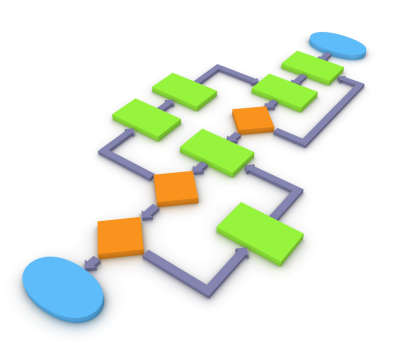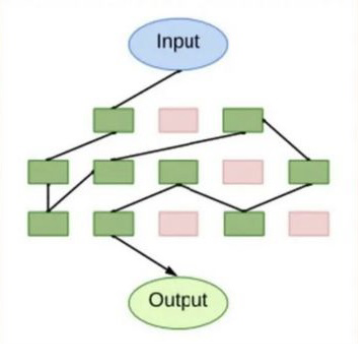The article focuses on the significance of algorithmic thinking in the era of information technology. The author discusses methods and approaches to developing algorithmic thinking in students, including the use of various methodological techniques, the integration of algorithmic thinking into natural learning processes, and a practice-oriented approach. Special attention is paid to the application of specific teaching methods for the development of algorithmic thinking.
Keywords: algorithmic thinking, information technology, education system, informatics, methods.
In today's society of intensive information technology development, algorithmic thinking plays a key role in preparing the younger generation. The task of the education system is to form the ability of students to algorithmically organize information processes and solve problems using information technologies. In this context, the study of informatics in school acquires special significance, as it contributes to the development of algorithmic thinking in children.
Bakhusova E. V. and Yudin D. D. emphasize the importance of explaining methods and ways of forming algorithmic thinking, pointing to this as a key pedagogical task in the conditions of an information society [3]. It is a systematic and methodologically justified approach to teaching that can ensure the successful formation of algorithmic skills in students.
Gavrilova I. V. in her research highlights the importance of using various methodological techniques in teaching algorithmization, such as trit-cards, which allow visualizing the process of solving a problem and moving from concrete to abstract [4]. This not only contributes to the development of algorithmic thinking but also takes into account the characteristics of modern students, prone to clip thinking and rapid change of attention.

Andreeva D. D. in her article emphasizes that the key aspect of developing algorithmic thinking in students in computer science classes is the application of specific teaching methods. The formation of algorithmic thinking in students is proposed to be carried out in three stages:
- the introduction of the algorithm with the actualization of knowledge and the opening of the algorithm by students under the guidance of the teacher;
- mastering the algorithm through the processing of individual operations;
- the application of the algorithm by practicing in various situations.
One of the main methods used by the author is the problem method, which allows students to actively participate in problem-solving through cognitive tasks [2].

Kazakova D. A. in her work attaches great importance to the integration of algorithmic thinking into natural learning processes in computer science classes in primary school. The basis for studying constructions is not only typical computer tasks but also the analysis of phenomena from nature and everyday life, which allows enriching the educational process with real examples. This helps children better understand algorithms, see their application in life, and develop the necessary algorithmic skills from setting a goal to achieving a result [5].

From Smolyaninov D. P. and Altukhova S. V. we learn about the importance of a practice-oriented approach in teaching informatics. The authors focus on creating conditions for the development of algorithmic thinking, where fascinating practical tasks are used in computer science classes using the «Yandex.Textbook» platform, contributing to the meaningful perception of information and decision-making based on algorithmic culture. In this way, students gain invaluable experience in solving problems in everyday life, which contributes to the formation and development of skills necessary for a successful life in an information society [6].
In total, we have presented a comprehensive view of the problem of developing algorithmic thinking in school informatics and specific methods and ways of their implementation. This confirms our opinion that a systematic and multi-aspect approach to teaching algorithmization is the key to the successful development of algorithmic thinking in children, which is extremely important for their successful adaptation to the requirements of modern information society.
References:
- Akhaeva, R. R. Development of logical and algorithmic thinking of students in computer science classes / R. R. Akhaeva, Z. M. Mutsurova // Innovative Technologies in Education. — 2020. — No. 3 (5). — P. 40–48.
- Andreeva, D. D. Development of algorithmic thinking in computer science classes as a key skill in teaching programming to schoolchildren / D. D. Andreeva // Personality and Society. — 2020. — No. 9 (20). — P. 4–8.
- Bakhusova, E. V. Development of algorithmic thinking in middle school children in computer science classes / E. V. Bakhusova, D. D. Yudin // Volga Science Bulletin. — 2023. — No. 2 (28). — P. 53–57.
- Gavrilova, I. V. Taking into account the clip thinking of students on the example of studying algorithmic constructions in the school course of computer science / I. V. Gavrilova // Personality and Society. — 2019. — No. 2 (2). — P. 17–19.
- Kazakova, D. A. Development of algorithmic thinking in younger students in computer science classes / D. A. Kazakova // Modern Scientific Research and Developments. — 2018. — Vol. 1, No. 4 (21). — P. 253–254.
- Smolyaninov, D. P. Features of the development of algorithmic thinking of students in computer science classes using the digital educational platform «Yandex.Textbook» / D. P. Smolyaninov, S. V. Altukhova // Pedagogical Issues. — 2022. — No. 4–1. — P. 258–263.

